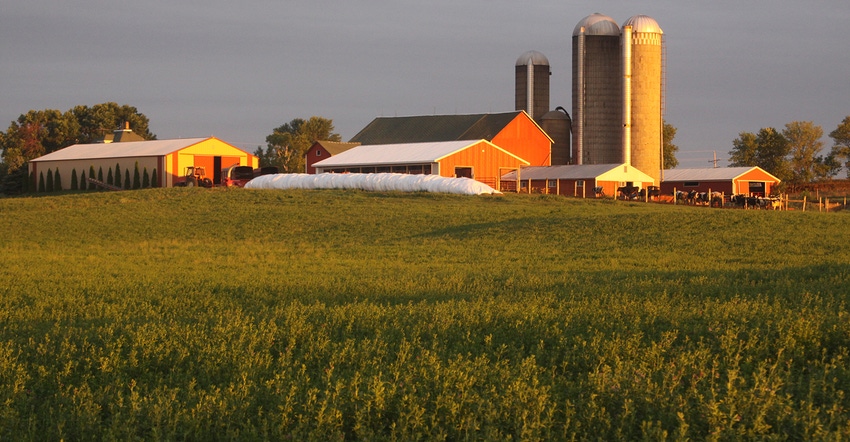November 7, 2017

My husband and I are 51 years old. Our 23-year-old son is planning to come back to the farm in May after he graduates from college. We milk 120 cows and farm 280 acres. Originally, we were planning to expand our herd and milk more cows when our son graduates, but with milk prices what they are and no guarantee there would be a home for our milk if we expand, we have decided it would make more sense for my husband to get a full-time job off the farm and not expand our herd. We have a 26,000-pound herd average, and we owe $250,000 on our farm. Are we doing the right thing? We could expand in a few years if milk prices go up again and there are no milk supply issues, but we think it makes more sense to keep our cow numbers the same, continue to improve our herd, and be ready to expand if the opportunity arises. What are your thoughts?
Hodorff: Sounds like you have made a decision I would be concerned about. I think you should have your son work off the farm for three to five years, and then have the discussion on the future of the farm. Your son would have no skin in the game by coming back to the farm. When and if he returns to the farm, he should assume some financial commitment. As you expand, you will experience many growing pains. You should have a five-year plan in place so all involved know what your goals are. If your son wants to farm, then that would be a starting point for a five-year plan. You can still increase your cow numbers and improve. Your five-year plan will help answer your concerns about expanding.
Miller: You have identified a number of important questions, including: do you have a home for the expansion milk; and bringing on additional labor/management vs. having adequate additional revenues to cover their costs. Does it make more sense for your husband to seek a full-time off-the-farm job, or your son?
In addition, it’s never too early to go through a business planning process to put an expansion plan together, and then exercise it when the timing meets your objectives. Work with a qualified dairy business consultant to go through family and business goal setting, and then a business plan to guide you through the expansion process. This can help identify the strengths and weaknesses of the business, the financial and managerial capacity to expand, and the additional capital investment you would have to make in facilities, livestock, feed storage, and machinery and equipment. Good luck reviewing the current and future status of your business.
Wantoch: Expanding your farm business, especially to include the next generation, can be exciting, but it can also be a bumpy road. I would encourage you to analyze your farm operation to determine the feasibility of the options you mentioned. In addition, you may want to review the farm’s total cost of production — reviewing the costs associated with milk production. Consult with a University of Wisconsin Extension ag agent, technical college instructor or local banker if you need resources to assist in this process.
If you decide not to expand your operation at this time, you could look to fine-tune your farm’s income and expenses. Knowing your cost of production will greatly assist with this step, though a word of caution from former ag Extension agent Ken Bolton: “When does a savings, in-fact, become a sacrifice?” He suggests that renegotiating contracts, comparison shopping and bulk purchases may be ways of reducing expenses without reducing associated production potential. Kevin Bernhardt, University of Wisconsin Center for Dairy Profitability, suggests that when the storm clouds pass and margins are more favorable, the sustainably profitable operations will get back to work preparing to be resilient for the next downturn.
Agrivision panel: Doug Hodorff, Fond du Lac County dairy farmer; Sam Miller, managing director, group head of agricultural banking at BMO Harris Bank; and Katie Wantoch, Dunn County Extension ag agent specializing in economic development. If you have questions you would like the panel to answer, send them to: Wisconsin Agriculturist, P.O. Box 236, Brandon, WI 53919, or email [email protected].
You May Also Like




